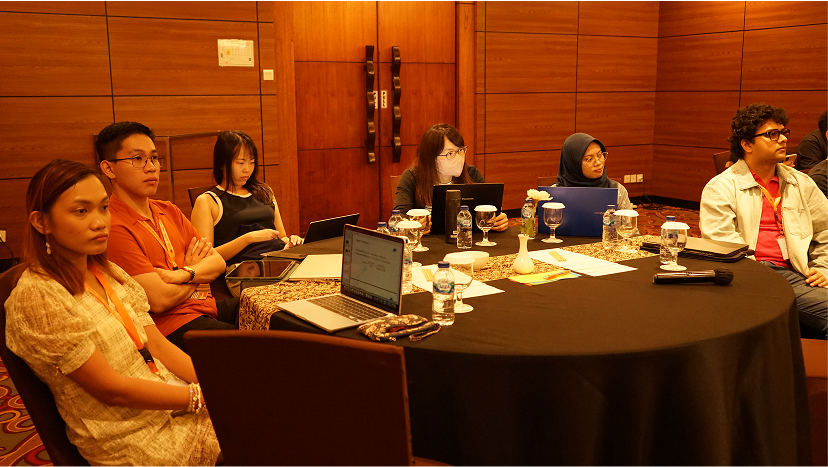 On the third day of the MIDSEA Summer School 2025, Dr. Akira Endo, Assistant Professor from the Saw Swee Hock School of Public Health, discussed Bayesian Inference and Markov Chain Monte Carlo (MCMC) as key topics. Dr. Endo explained the fundamentals of Bayesian inference, which is the process of updating knowledge or beliefs based on new data. Using Bayes’ Theorem, this approach combines prior knowledge about parameters (the prior) with observed data to produce a posterior distribution, which describes the likely values of the parameters after accounting for the data.
On the third day of the MIDSEA Summer School 2025, Dr. Akira Endo, Assistant Professor from the Saw Swee Hock School of Public Health, discussed Bayesian Inference and Markov Chain Monte Carlo (MCMC) as key topics. Dr. Endo explained the fundamentals of Bayesian inference, which is the process of updating knowledge or beliefs based on new data. Using Bayes’ Theorem, this approach combines prior knowledge about parameters (the prior) with observed data to produce a posterior distribution, which describes the likely values of the parameters after accounting for the data.
Additionally, the Bayesian approach was compared with the Frequentist approach (including Maximum Likelihood Estimation (MLE)), highlighting Bayesianism’s advantages in handling uncertainty and updating models with greater flexibility. However, as explained, this process requires efficient sampling techniques, as directly calculating the posterior distribution is often not feasible in complex models.
To address this, MCMC was introduced as a method for generating samples from the posterior distribution. It was explained how the Metropolis-Hastings algorithm within MCMC works by iteratively moving sample positions based on a probability function, leading to posterior samples once convergence is achieved.
In this session, participants not only listened to theoretical explanations but were also given the opportunity to try R code directly. Participants were asked to run R code designed to perform posterior sampling using techniques like importance sampling and Metropolis-Hastings. After trying the code, participants received detailed explanations of the steps involved, including how to select proposal distributions and calculate the Effective Sample Size (ESS) to evaluate the quality of the samples obtained. This helped participants understand how theory translates into practice and how to overcome issues that arise during code implementation.
The session was highly interactive, with participants actively asking questions and engaging in discussions, expressing their understanding of the challenges and applications of Bayesian inference and MCMC in more complex statistical research. By using Bayesian inference, participants can combine prior knowledge with new data to create more flexible and accurate models. Meanwhile, by studying MCMC, participants gained skills in tackling the complexities of statistical models, such as when posterior distributions are difficult to compute directly. The hands-on practice using R also provided highly valuable practical skills in statistical research, enabling participants to apply these techniques in various scientific applications and their own research.
 Keywords: MIDSEA, Modelling, Infectious Diseases Modelling
Keywords: MIDSEA, Modelling, Infectious Diseases Modelling
Author: Najida Humaira
Photos: Lucetta Amarakamini

